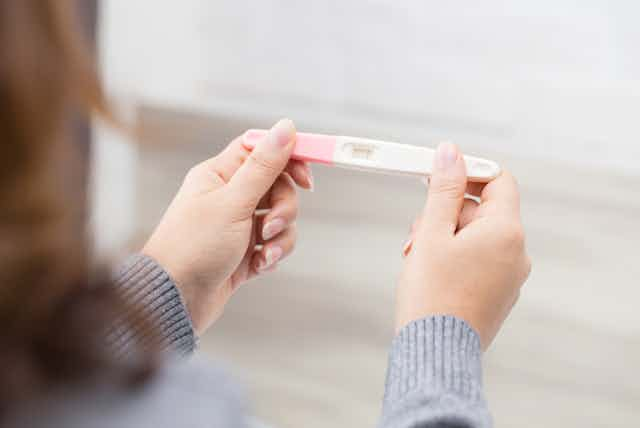A combination of feminist advocacy, new drugs and the internet is allowing people to safely end early pregnancies themselves when they choose to do so. People can manage abortions using medicines without face-to-face contact with doctors and nurses.
A service at a distance, supervised by a doctor, was first offered by Women on Web in 2005 for countries with no lawful access to medical abortion. Women Help Women offers similar help to women anywhere in the world. And in the US, Aid Access – a fairly new organisation – offers email support. (In the US, online help is increasingly used because access to abortion clinics has been reduced in the last few years.)
Now, as we grapple with the COVID-19 pandemic, professional organisations, such as the UK Royal College of Obstetricians and Gynaecologists, are coming up with similar models of care. As well as doing remote consultations and mailing out the tablets when appropriate, other changes in healthcare service-delivered abortions will be needed. Ultrasound scans and blood tests can safely be omitted for the majority. Regulations may need to be changed to allow people to take the drug mifepristone (a drug that triggers the abortion process) at home - in some countries only misoprostol, a drug that expels the pregnancy, is permitted to be taken at home. And nurses and midwives should be authorised to prescribe the drugs. When all these emergency measures are put in place, the system in clinics and hospitals we will almost be at the point of self-managed care for those seeking an early abortion.
At the time of writing, an issue that has emerged, particularly for supervised self-managed medical abortions, is that all mail services between countries are disrupted by an almost total lack of international flights. Creative ways of communicating with pharmacies or prescribers local to applicants will need to be thought out.

To some, the term “self-managed” may bring to mind a picture of risky do-it-yourself abortions in unsanitary conditions. But people choosing to self-medicate are moving away from taking poisonous substances or herbal remedies towards taking approved medicines. How effective these medical abortions will be depends on whether the drugs are genuine, the information on how to administer the drugs (mifepristone and misoprostol) is accurate and the dosage is correct.
If people looking for an abortion choose not to use online services with oversight such as the ones mentioned above, the drugs can be obtained in other ways. Online pharmacies offer genuine products without a prescription, but there are also bogus sites that sell fake and substandard medicines. The drugs can be bought from pharmacies without a prescription in many countries in Latin America, Africa and Asia. But pharmacists need more training so they can give the best advice.
The World Health Organization promotes self-care for people wanting to manage their abortion at home. Self-managed medical abortion within the first 12 weeks of pregnancy following evidence-based regimens is safe, provided the drugs mentioned above are from approved sources and all necessary information is available. Many websites offer evidence-based information on self-managed abortion, such as How to use abortion pill. Safe-abortion hotlines staffed by local workers are a good source of high-quality information.
How to do it safely
If you are seeking an abortion, it’s important that you check that you are medically suitable for a self-managed abortion and that you don’t need care in a clinic or hospital - you can do this either by accessing a remote online service or by finding reliable information. You should do some reading on the topic beforehand or speak to a hotline so you know what to expect in the way of symptoms, drug side-effects and amount of bleeding. You should know how to get local emergency medical help if the need arises. Also, what the symptoms are that may indicate complications afterwards.
The amount of emotional and social support you may need when carrying out your own abortion varies a lot, as does the support available to you. Sources of support include a partner (if you are in a relationship), friends, family, local volunteers and trained pregnancy companions, known as doulas.
The reasons people manage their own abortions are varied. Positive reasons include privacy and being in control of what happens to your body. Negative reasons may be low income, stigma, long travelling distances to a clinic, the need to take time off work, family commitments or mental health issues. But in most countries, these abortions are a criminal offence. Decriminalisation is an essential first step in making abortion more normal in society. In a new book, Decriminalising Abortion in the UK, my co-authors and I discuss how decriminalisation would benefit women’s health and wellbeing.
The drugs needed for abortion should be available without a prescription (they are safer than a shot of penicillin). Only 68 countries have licensed mifepristone and then it is on prescription only. Misoprostol, which is taken in combination with mifepristone or alone, is widely available but in some countries on prescription only.
Self-managed medical abortions can now be carried out anywhere in the world. But to keep yourself safe make sure the information you use is accurate (I can vouch for the websites mentioned in this article), the drugs genuine (check pharmacies against list of fake sites) and that local medical back-up is on hand. And, importantly, don’t break the law.

